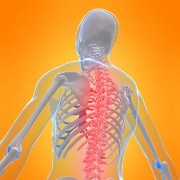 Photo: Getty Images
Photo: Getty Images
According to the Alzheimer's Association, 5.4 million adults in the United States have a type of dementia called Alzheimer's disease. The organization added that 200,000 of these people have early onset Alzheimer's disease, in which symptoms begin before age 60, and 5.2 million have late onset Alzheimer's disease, in which the symptoms begin age 60 or older.
As Alzheimer's disease progresses, patients can have more severe cognitive dysfunction and impairment. In the stage before Alzheimer's disease, mild cognitive impairment or MCI, patients may have problems solving problems or they may forget recent conversation they had. However, these issues do not interfere in their daily activities. In the early stage of Alzheimer's, patients can have problems learning new information and may get lost on routes that were familiar to them. Language problems and personality changes may develop. As the dementia progresses, the memory and language problems become more severe and patients have increased difficulty caring for themselves. With severe Alzheimer's disease, the impairments affect patients' comprehension of language, ability to care for themselves, and recognition of family members.
MedlinePlus explained that there is only one exact way of diagnosing Alzheimer's disease: examining the brain tissue after the patient's death for the presence of plaques and tangles. Since there is a need to diagnose the condition while the patient is alive, other tests can be done to help rule out other causes, such as vitamin deficiency or thyroid problems. Possible diagnostic tests for Alzheimer's include a physical examination, neuropsychological testing and brain scans, such as a CT scan or MRI scan. One evaluation that may be done during the physical examination is to take a sample of the patient's spinal fluid for analysis. For example, doctors may look if the patient has an imbalance of two proteins involved in Alzheimer's disease: beta amyloid and tau. Beta amyloid group together to form plaques. Normally, tau is involved in cell transport, but in Alzheimer's disease, they collapse to form tangles.
A new testing method using spinal fluid may help diagnose Alzheimer's earlier when patients are having mild symptoms. The study, which was published in Neurology, used spinal fluid from 58 participants who had mild cognitive impairment. The researchers looked for amyloid precursor protein, or APP, in the spinal fluid. They discovered that the 21 participants who developed Alzheimer's disease had higher amounts of soluable amyloid precursor protein beta, which is the remnant of APP, in their spinal fluid. Julie Steenhuysen of Reuters reported that this test is about 80 percent accurate in its prediction of disease development when added with other biomarkers, which include age.
References
Alzheimer's Association. Fact Sheet: 2011 Alzheimer's Disease Facts and Figures. March 2011. Web. 4 July 2011
http://www.alz.org/documents_custom/2011_Facts_Figures_Fact_Sheet.pdf
A.D.A.M. Alzheimer's Disease. MedlinePlus, 2011. Web. 4 July 2011
http://www.nlm.nih.gov/medlineplus/ency/article/000760.htm
Fisher Center for Alzheimer's Research Foundation. Alzheimer's Diagnostic Tests. Web. 4 July 2011
http://www.alzinfo.org/07/about-alzheimers/alzheimers-diagnostic-tests
Alzheimer's Association. More About Plaques. Web. 4 July 2011
http://www.alz.org/brain/11.asp
Alzheimer's Association. More About Tangles. Web. 4 July 2011
http://www.alz.org/brain/12.asp
Julie Steenhuysen. New Test May Predict Alzheimer's Early: Study. Reuters, 22 June 2011. Web. 4 July 2011
http://www.reuters.com/article/2011/06/22/us-alzheimers-test-idUSTRE75L7Q320110622
Reviewed July 4, 2011
by Michele Blacksberg R.N.
Edited by Alison Stanton






Add a CommentComments
There are no comments yet. Be the first one and get the conversation started!